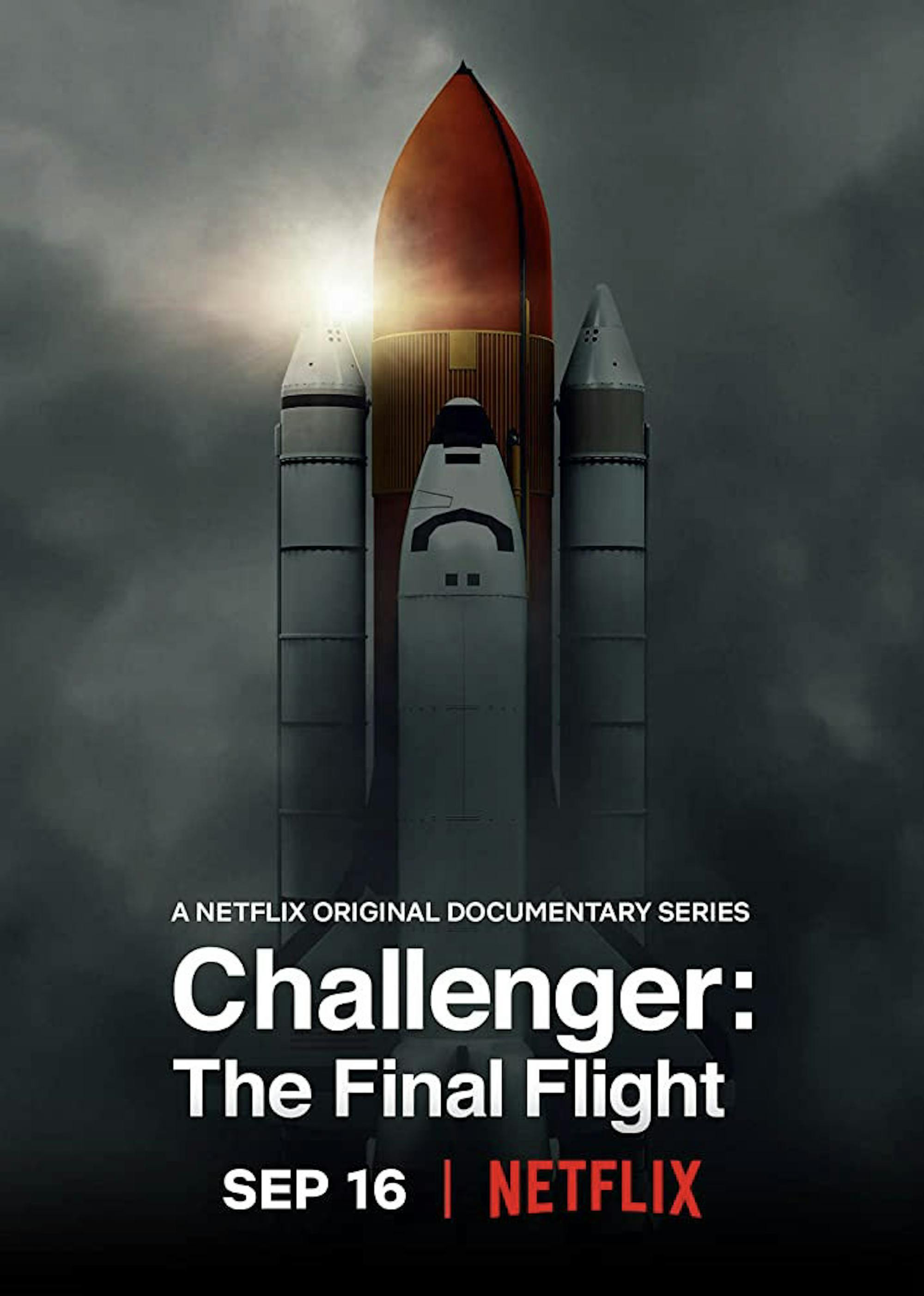I do not envy the task that the creators of Netflix’s Sept. 16 release, “Challenger: The Final Flight” (2020), set for themselves. How can one create a documentary that’s both informative and engaging, all while respecting the lives lost and the grief of the still-living family members of the doomed shuttle’s seven victims? To answer my rhetorical question, “Challenger: The Final Flight” does successfully fulfill all these goals, but is held just short of greatness by its adherence to convention.
Cataloging the events leading up to the infamous explosion of the Space Shuttle Challenger on Jan. 28, 1986, “Challenger: The Final Flight” is broken up into four roughly 40-minute episodes that pull together the various strings and moving parts into one coherent narrative. The feat is impressive, especially when one considers the vast number of testimonials, from victims’ families to former NASA top brass to ex-astronauts, that the series puts forth as a whole.
This gallery of voices is where the documentary takes on a life of its own, allowing members of the audience (some of whom may have never heard of the Challenger disaster) to understand the sheer scope of the American tragedy. So too does the news footage, particularly in the fourth episode, which shifts the focus to the aftermath of the explosion and stitches together TV interviews from average citizens to the president and vice president of the United States to lay bare the trauma that swept the nation in the wake of the catastrophe.
The story presented by the documentary was supposed to be one of great optimism and excitement, ultimately marred by human error. For an event that occurred several decades in the past, where much of the story may be common knowledge, the show does an excellent job allowing the audience to feel the emotions along with its subjects.
Viewers may feel a particular attachment to several subjects, including Christa McAuliffe, who would have been thefirst teacher in space, as well as several other astronauts. McAuliffe becomes a point-of-view character of sorts for a bit through the use of archival footage, which shows her training and the process of her being accepted into the space program, and follows her until her and her crewmates' tragic deaths. The choice to see the world as McAuliffe did was no doubt to ease the audience in with another non-astronaut, and yet the other crew members are more than deserving of more screen time, if not dedicated episodes.
Sadly, the series’ structure that allows for a tight plotting also traps the film into all too familiar documentary tropes. Unfortunately, the documentary is a bit predictable, as the structure of news clip then interview, then news clip, music sting, stock footage or some other combination of the elements becomes more and more apparent throughout the series.
The music too disappoints, after the introduction’s heavy synth beats obviously inspired by the sounds of the ‘80s. This isn’t to say that the structure hinders the content, nor is it a significant strike against the documentary, though one must wonder if something more creative could have been done with the narrative given.
One must also question if the documentary is hindered by its length, as it’s too long to zero in on one aspect and too short to give the appropriate development plot lines that beg for more content, such as the crew’s history, in greater detail.
“Challenger: The Final Flight” doesn’t quite overcome the tropes of documentary filmmaking, but remains a well-told and engaging story nonetheless.






